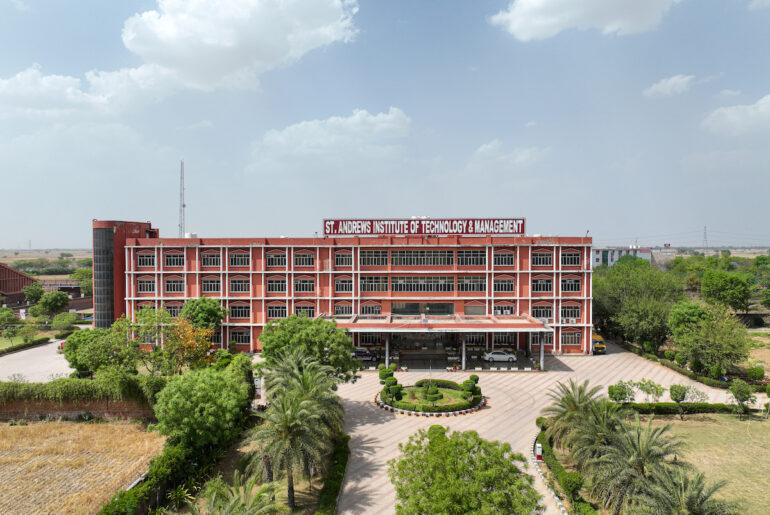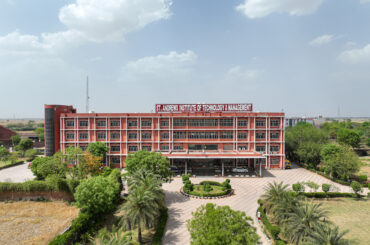MBA in India
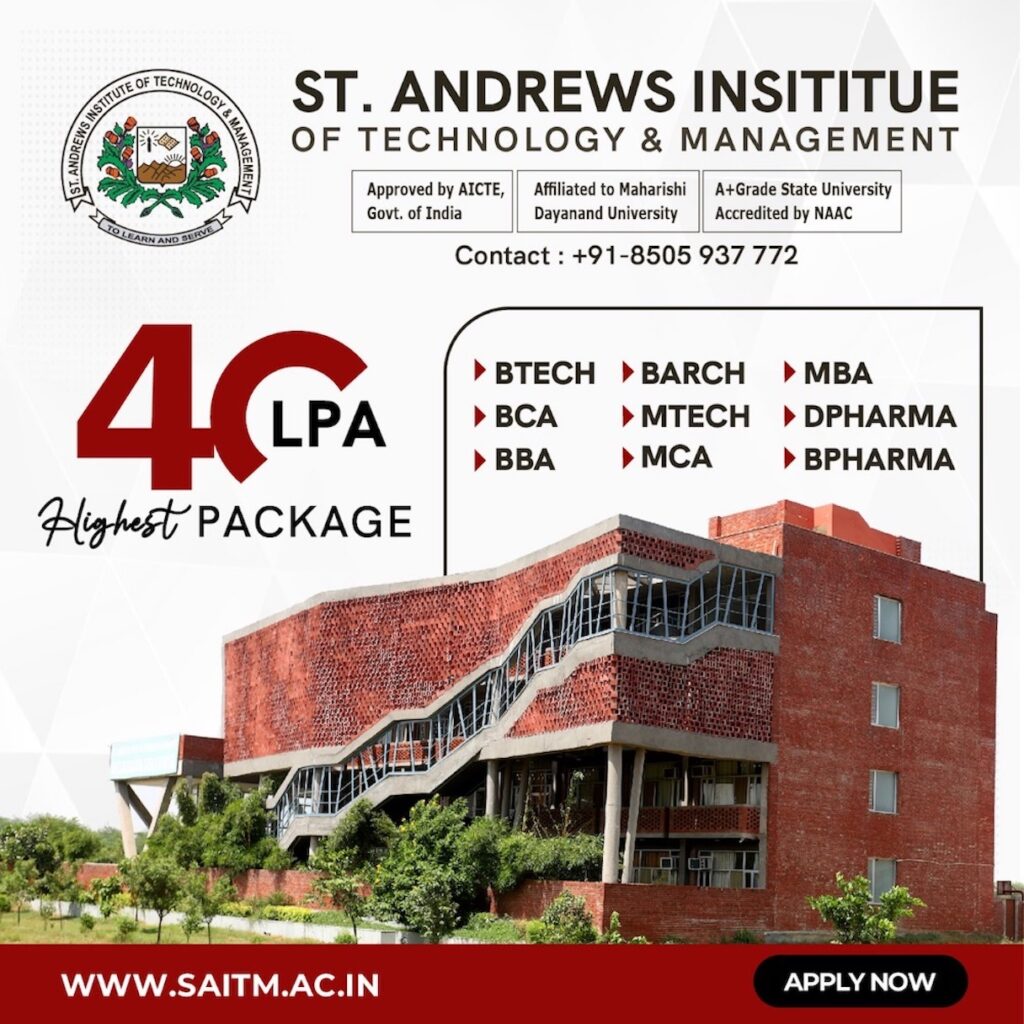
Getting an MBA in India can be a transformative step for your career. Indian business schools offer a wide range of programs, from prestigious institutions like the Indian Institutes of Management (IIMs) to other renowned universities and private colleges.
Here’s a general overview of pursuing an MBA from India:
Entrance Exams
Most MBA programs in India require you to take an entrance exam. The Common Admission Test (CAT) is the most popular exam accepted by many top-tier B-schools. Other exams include XAT, MAT and CMAT.
Application Process
After clearing the entrance exam, you’ll need to apply to your chosen B-schools. Each institute may have its own application process, which typically includes submitting scores, academic transcripts, essays, letters of recommendation, and sometimes, undergoing a personal interview.
Specializations
MBA programs in India offer various specializations such as finance, marketing, human resources, operations management, information technology, and more. Choose a specialization that aligns with your career goals and interests.
Duration
The duration of MBA programs in India typically ranges from one to two years. Some programs offer an option for part-time or executive MBA, which are designed for working professionals.
Curriculum
The curriculum of MBA programs in India usually includes core courses in management principles and practices, along with elective courses in your chosen specialization. Many programs also emphasize practical learning through internships, case studies, and industry projects.
Placement
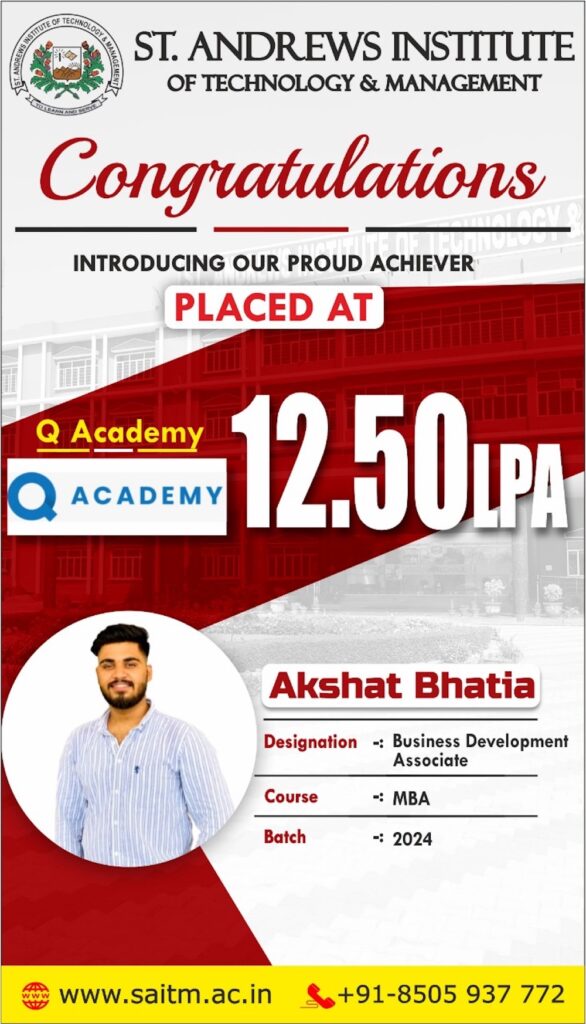
Top B-schools in India have strong placement records, with leading companies visiting campuses for recruitment. However, securing a job after graduation depends on various factors such as your performance during the program, networking skills, and market conditions.
Cost and Financial Aid
The cost of an MBA programme in India varies depending on the institute and program duration. While some institutes have high tuition fees, others offer scholarships and financial aid to deserving candidates.
Accreditation and Rankings
Consider the accreditation and rankings of the B-schools you’re interested in. Rankings such as those by NIRF (National Institutional Ranking Framework) can give you insights into the reputation and quality of different institutions.
Networking Opportunities
One of the significant benefits of pursuing an MBA is the opportunity to network with peers, alumni, and industry professionals. Take advantage of networking events, seminars, and workshops organized by your B-school.
Post-MBA Opportunities
An MBA can open doors to a wide range of career opportunities, including roles in corporate management, consulting, entrepreneurship, and more. Evaluate your career goals and choose a program that aligns with your aspirations.
Some of the most opted courses in India and St. Andrews college or different Engineering college or Management colleges are as follows:-
- Btech
- Btech CSE
- Btech ETCE
- MTech
- BCA
- BBA
- MBA
- MCA
- DPharma – St. Andrews College of Pharmacy
- BPharma – St. Andrews College of Pharmacy
- BArch – St. Andrews College of Architecture
Types of MBA Programs in India

MBA programs in India come in various formats to cater to different needs of students and professionals.
Here are the main types of MBA programmes available in India:
Full-Time MBA:
- Duration: 2 years
- Audience: Recent graduates and early-career professionals.
- Features: Comprehensive curriculum covering core business disciplines with internships, live projects, and campus placements.
Executive MBA (EMBA):
- Duration: 1-2 years (typically part-time or weekend-based)
- Audience: Working professionals with substantial work experience (typically 5-10 years).
- Features: Focuses on leadership and advanced management skills, offering flexible scheduling for working professionals.
Part-Time MBA:
- Duration: 2-3 years
- Audience: Working professionals seeking career advancement while working full-time.
- Features: Evening or weekend classes, with a curriculum similar to the full-time MBA.
Distance Learning MBA:
- Duration: 2-4 years
- Audience: Working professionals or those with location constraints.
- Features: Flexible study schedules with online classes and exams, allowing students to learn remotely.
Online MBA:
- Duration: Varies (typically 1-2 years)
- Audience: Professionals or individuals unable to attend regular on-campus classes.
- Features: Entirely online with digital learning modules, video lectures, and virtual collaborations.
Dual Degree MBA:
- Duration: 3-5 years (combined with another degree)
- Audience: Students interested in gaining expertise in business management alongside another discipline.
- Features: Combines an MBA with another degree such as engineering, law, or international business.
Specialized MBA:
- Duration: 1-2 years
- Audience: Professionals or students interested in focused management areas.
- Features: Programs in niche fields like Healthcare Management, Sports Management, Agribusiness, or Digital Marketing.
MBA Specializations in India

MBA programmes in India offer a diverse array of specializations to meet the varied career goals and interests of students.
Here are some popular MBA specializations:
Finance:
Focus: Corporate finance, investment banking, financial planning, risk management, and asset management.
Careers: Financial analyst, investment banker, portfolio manager, risk manager.
Marketing:
Focus: Consumer behavior, digital marketing, market research, branding, and sales management.
Careers: Brand manager, marketing analyst, sales manager, product manager.
Human Resource Management (HRM):
Focus: Talent management, labor laws, organizational behaviour, recruitment, and employee training.
Careers: HR manager, recruitment specialist, training and development manager.
Operations Management:
Focus: Supply chain management, logistics, quality control, production planning, and project management.
Careers: Supply chain manager, operations analyst, production manager.
Information Technology (IT) Management:
Focus: IT strategy, data management, cybersecurity, software project management, and IT consulting.
Careers: IT manager, project manager, business analyst, IT consultant.
International Business:
Focus: Global business strategies, international finance, cross-cultural management, and export-import management.
Careers: International business manager, export manager, foreign trade consultant.
Business Analytics:
Focus: Data analytics, predictive modeling, data mining, machine learning, and business intelligence.
Careers: Business analyst, data scientist, market researcher, analytics consultant.
Entrepreneurship:
Focus: Startup development, venture funding, business innovation, and enterprise management.
Careers: Startup founder, business development manager, venture capitalist.
Healthcare Management:
Focus: Hospital administration, healthcare systems, medical ethics, and healthcare policies.
Careers: Hospital administrator, healthcare consultant, medical practice manager.
Rural Management:
Focus: Rural marketing, agribusiness management, cooperative management, and development programs.
Careers: Rural manager, agribusiness consultant, development project manager.
Strategy and Consulting:
Focus: Corporate strategy, management consulting, competitive analysis, and business development.
Careers: Strategy consultant, management consultant, corporate strategist.
Sports Management:
Focus: Sports marketing, event management, sports law, and facility management.
Careers: Sports manager, event organizer, sports marketing executive.
MBA Admission Process in India

Admission criteria for MBA courses in India generally include a combination of academic qualifications, standardized test scores, and assessment of professional and personal qualities.
Here’s a summary of the most common requirements:
Academic Qualifications:
A bachelor’s degree from a recognized university, typically with a minimum of 50% aggregate marks. Some universities may have higher or lower percentage requirements.
Final-year undergraduates can apply, provided they complete their degree before the program starts.
Entrance Exam Scores:
National-level exams like CAT, XAT, CMAT, or MAT.
State-level exams such as MAH-CET, TANCET, AP ICET, and TS ICET.
Work Experience (optional):
Some programs, particularly Executive MBAs or specialized programs, require candidates to have work experience ranging from 1 to 10 years.
Group Discussion (GD) and Personal Interview (PI):
Most institutions conduct GDs to assess a candidate’s communication skills, leadership abilities, and analytical thinking.
Personal interviews evaluate motivation, personality, career aspirations, and fit with the institution.
Written Ability Test (WAT):
Some programs require a written essay to evaluate analytical thinking and articulation skills.
Statement of Purpose (SOP):
Some colleges ask for an SOP to understand a candidate’s goals, aspirations, and reasons for choosing that program.
Letters of Recommendation (LOR):
Required for some programs, LORs often come from academic or professional references to highlight the candidate’s strengths.
Resume or Curriculum Vitae (CV):
Outlines academic qualifications, work experience, achievements, and other relevant activities.
Program Curriculum for MBA from India

The MBA program curriculum in India is organized to provide students with a comprehensive grasp of principles and practices in corporate administration. While each institution might introduce variations, here’s a general outline of what a typical MBA degree curriculum entails:
First Year
Core Courses: Foundational courses that cover key management principles:
- Financial Management
- Marketing Management
- Human Resource Management
- Operations Management
- Business Analytics
- Managerial Economics
- Organizational Behaviour
- Business Communication
- Legal Aspects of Business
- Management Information Systems
Skill Development:
- Workshops on soft skills, leadership, and negotiation.
- Industry talks, seminars, and guest lectures.
Industry Exposure:
- Live projects, field visits, and case study discussions.
Summer Internship
- A mandatory internship, usually 8-12 weeks long, with companies or organizations to apply first-year learnings in a real-world business environment.
Second Year
Elective Courses: Advanced courses where students specialize in a particular area like:
- Finance (Investment Management, Corporate Finance)
- Marketing (Digital Marketing, Consumer Behaviour)
- Operations (Supply Chain Management, Project Management)
- Human Resource Management (Talent Management, Labor Law)
- Information Technology (Business Intelligence, IT Consulting)
- Business Analytics (Big Data Analytics, Predictive Modeling)
- International Business (Global Strategy, Export Management)
- Entrepreneurship (Startup Development, Venture Funding)
Capstone or Research Project:
- A comprehensive project that requires students to solve a business problem or conduct research under faculty guidance.
Additional Workshops and Certifications:
- Training in tools like data analysis software, digital marketing platforms, and supply chain management systems.
Global Exposure (optional):
- International exchange programs, study tours, or internships with global companies.
Placement Preparation:
- Pre-placement talks, mock interviews, group discussions, and career counseling.
Career Opportunities for MBA programs in India

An MBA course in India opens up diverse career opportunities across various sectors. The specific paths available depend on the specialization pursued, personal interests, and skill sets.
Here are some common career opportunities for MBA graduates:
Marketing and Sales
Roles: Brand Manager, Sales Manager, Digital Marketing Manager, Market Research Analyst, Product Manager, Business Development Executive.
Industries: FMCG, Retail, Advertising, Digital Media, Pharmaceuticals.
Finance
Roles: Investment Banker, Financial Analyst, Credit Analyst, Corporate Finance Manager, Risk Manager, Treasury Manager.
Industries: Banking, Asset Management, Private Equity, Insurance, Corporate Finance.
Human Resource Management
Roles: HR Manager, Recruitment Specialist, Training and Development Manager, Compensation and Benefits Analyst.
Industries: IT/ITES, Manufacturing, Banking, Healthcare, FMCG.
Operations and Supply Chain
Roles: Operations Manager, Supply Chain Analyst, Logistics Manager, Production Manager, Project Manager.
Industries: Manufacturing, Retail, E-commerce, Consulting.
Information Technology Management
Roles: IT Manager, IT Project Manager, Business Analyst, Systems Consultant, IT Strategy Manager.
Industries: IT/ITES, Consulting, E-commerce, Financial Services.
Business Analytics and Data Science
Roles: Business Analyst, Data Scientist, Analytics Consultant, Market Research Analyst, Business Intelligence Manager.
Industries: IT/ITES, Consulting, Retail, Banking, Pharmaceuticals.
International Business
Roles: Export Manager, Global Supply Chain Manager, International Sales Director, Foreign Trade Analyst.
Industries: Export-Import, Logistics, FMCG, Global Consulting Firms.
Entrepreneurship
Roles: Startup Founder, Business Development Manager, Venture Capital Analyst, Incubation Manager.
Industries: Technology, E-commerce, FinTech, Social Enterprises.
Strategy and Consulting
Roles: Management Consultant, Strategy Consultant, Corporate Strategist, Business Development Manager.
Industries: Consulting Firms, Corporate Strategy Teams, Investment Banking.
Entrance Exams for MBA Admission in Tier 2 Colleges

Entrance exams for MBA admission at tier 2 colleges typically include some of the more widely accepted and recognized national-level tests, along with other MBA entrance exams, such as state or college-specific exams.
Here are a few notable entrance exams:
Common Admission Test (CAT): Conducted by the Indian Institutes of Management (IIMs), it’s widely accepted by numerous MBA courses, including tier 2 colleges.
Management Aptitude Test (MAT): Conducted by AIMA, it’s held four times a year and accepted by many tier 2 colleges.
Common Management Admission Test (CMAT): Managed by the National Testing Agency, CMAT is accepted by many AICTE-approved institutes.
Xavier Aptitude Test (XAT): Conducted by XLRI, Jamshedpur, it is accepted by several institutes across India.
State-Level MBA Entrance Exams: Different states have their own entrance exams accepted by tier 2 institutions within that region. For instance:
- MAH-CET (Maharashtra)
- TANCET (Tamil Nadu)
- AP ICET (Andhra Pradesh)
- TS ICET (Telangana)
- Karnataka PGCET
List of Top Tier 2 MBA Colleges in India

In India, the categorization of best MBA colleges in India into different tiers often varies based on multiple factors like placements, faculty, infrastructure, and reputation.
Here is a curated list of 10 reputed Tier 2 MBA colleges in India and Tier 1:
Xavier Institute of Management (XIMB), Bhubaneswar:
Known for its rigorous academic curriculum and strong industry connections.
Offers various specializations in management such as HR, Marketing, Finance, etc.
Renowned for its faculty expertise and research contributions.
St. Andrews Institute of Technology and Management, Gurgaon

Known for its academic excellence and industry relevance.
Offers MBA programs with specializations in areas like Finance, Marketing, Operations, etc.
Prioritizing hands-on learning through participation in live projects, internships, and organized industry visits.
Narsee Monjee Institute of Management Studies (NMIMS), Mumbai:
Offers MBA programs in various specializations such as Finance, Marketing, Operations, etc.
Known for its innovative pedagogy and industry-oriented curriculum.
Has collaborations with international universities for exchange programs and research initiatives.
S.P. Jain Institute of Management and Research (SPJIMR), Mumbai:
Known for its unique pedagogy that emphasizes experiential learning and social sensitivity.
Offers various specialized management programs including PGDM, PGPM, and Executive programs.
Renowned for its strong focus on ethics and values in business education.
International Management Institute (IMI), New Delhi:
Known for its global perspective and emphasis on international exposure through exchange programs and collaborations.
Offers specialized management programs in areas like Strategy, HR, Marketing, etc.
Strong industry interface with regular guest lectures, workshops, and industry projects.
Institute of Rural Management Anand (IRMA), Anand:
Specializes in rural management education and development.
Offers programs focusing on rural development, cooperatives, and sustainable livelihoods.
Known for its strong emphasis on social responsibility and sustainable business practices.
T.A. Pai Management Institute (TAPMI), Manipal:
Known for its academic rigor and industry relevance.
Offers programs in various management domains including Marketing, Finance, Operations, etc.
Strong emphasis on research and industry collaboration.
K.J. Somaiya Institute of Management Studies and Research (SIMSR), Mumbai:
Offers MBA degrees with specializations in areas like Finance, Marketing, International trade, etc.
Known for its strong industry connections and placement record.
Emphasizes practical learning through live projects, internships, and industry visits.
Top 10 MBA Colleges in India
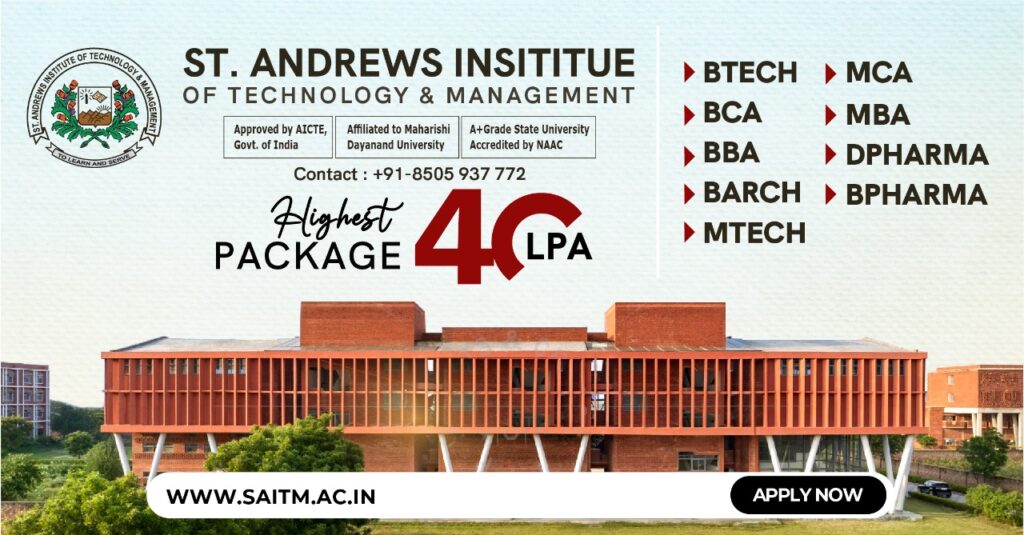
The ranking of MBA colleges in India often varies based on criteria like faculty, placements, research, industry connections, and infrastructure.
Here’s a list of the top 10 MBA colleges in India based on overall reputation and consistent rankings:
Indian Institute of Management Ahmedabad (IIM-A) – Known for its rigorous curriculum and excellent placements.
Indian Institute of Management Bangalore (IIM-B) – Offers a globally recognized program with a strong research focus.
Indian Institute of Management Calcutta (IIM-C) – One of the oldest IIMs with a stellar reputation for finance and economics.
Indian School of Business (ISB), Hyderabad – Known for its world-class faculty and one-year MBA program.
Indian Institute of Management Lucknow (IIM-L) – Recognized for its diverse and comprehensive management programs.
St. Andrews Institute of Technology and Management, Gurgaon- Provides MBA degrees that offer concentrations in fields such as Finance, Marketing, Operations, and other related disciplines.
Xavier School of Management (XLRI), Jamshedpur – Among the top choices for HR and business management.
Faculty of Management Studies (FMS), Delhi University – Delivers outstanding education with a compelling return on investment.
Indian Institute of Management Kozhikode (IIM-K) – Known for its innovative management curriculum.
Indian Institute of Management Indore (IIM-I) – Offers various management specializations with global connections.
SP Jain Institute of Management and Research (SPJIMR), Mumbai – Known for its experiential learning programs and leadership development.
Entrance Exams for MBA Admission in Tier 2 Colleges:
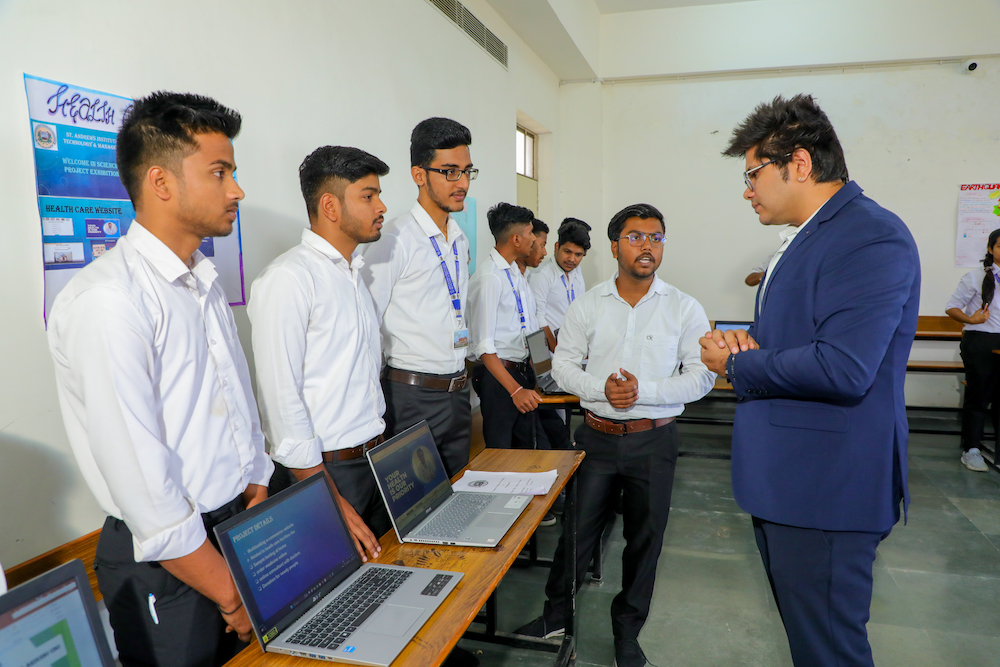
For admission into Tier 2 MBA colleges in India, several entrance exams are widely accepted.
Here’s a list of common exams that can help you secure a spot in these colleges:
Common Admission Test (CAT): Conducted by the IIMs, it is accepted by many Tier 2 colleges, including institutes like MDI, IMT Ghaziabad, SPJIMR, and others.
Management Aptitude Test (MAT): Conducted by AIMA, MAT is often used by Tier 2 and Tier 3 colleges across India.
Xavier Aptitude Test (XAT): Conducted by XLRI, this exam is accepted by many B-schools, especially those affiliated with the Xavier Association of Management Institutes (XAMI).
Common Management Admission Test (CMAT): Conducted by NTA, CMAT scores are accepted by many colleges under AICTE.
Indian Institute of Foreign Trade (IIFT) Entrance Exam: Conducted for MBA admissions to the IIFT institutes.
Tier 3 MBA Colleges in India

Tier 3 MBA colleges in India generally encompass institutions that might not enjoy the same level of recognition or prestige as Tier 1 or Tier 2 colleges but still provide valuable education for students seeking management careers through direct admission.
Here is a selection of Tier 1,2,3 MBA colleges known for their academic offerings:
Alliance School of Business, Bangalore: Offers comprehensive MBA degrees with industry-aligned curricula.
Jaipuria Institute of Management, Lucknow: Recognized for its focus on innovative management practices.
St. Andrews Institute of Technology and Management, Gurgaon: Delivers outstanding education with a compelling return on investment.
Institute of Public Enterprise (IPE), Hyderabad: Specializes in management programs tailored to public and private sector requirements.
School of Management Studies (SMS), Varanasi: Provides an affordable MBA course with good regional recognition.
Christ Institute of Management, Pune: Delivers quality education through its network of campuses.
ITM Business School, Navi Mumbai: Known for its focus on practical management education and skill development.
Top Private MBA Colleges in India

When considering private MBA colleges in India, some institutions stand out for their quality of education, placements, infrastructure, and industry connections.
Here are some of the top private MBA colleges in India:
Indian School of Business (ISB), Hyderabad/Mohali: Offers a globally renowned one-year MBA degree with world-class faculty.
Xavier School of Management (XLRI), Jamshedpur: Famous for its programs in Human Resources Management and corporate administration.
St. Andrews Institute of Technology and Management, Gurgaon: Provides specialized MBA programs with solid assistance for placements.
SP Jain Institute of Management and Research (SPJIMR), Mumbai: Known for its innovative teaching methods and strong placement records.
T. A. Pai Management Institute (TAPMI), Manipal: Known for its rigorous academic programs and experiential learning.
Goa Institute of Management (GIM), Goa: Provides management education with a focus on sustainability and research.
Top MBA Colleges in India: Placements-wise
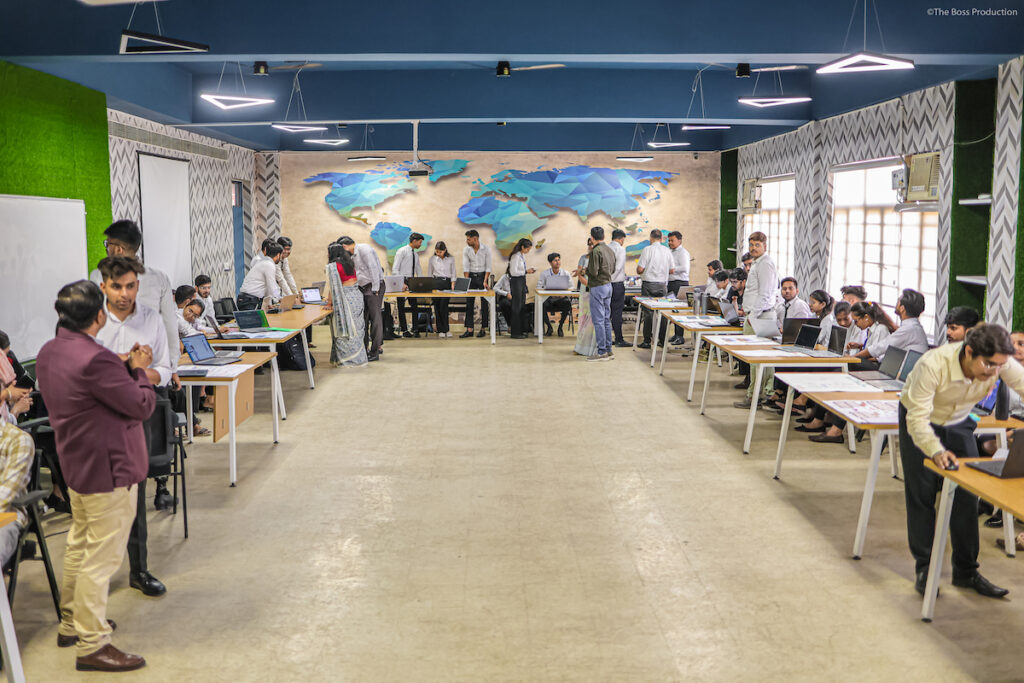
When assessing MBA colleges in India based on placements, factors like average salary, median salary, number of recruiters, and diversity of sectors are considered.
Here are some of the top MBA colleges in India, known for their campus placement records:
Indian Institute of Management Ahmedabad (IIM-A): Regularly achieves high average salaries, with graduates recruited across top consulting, finance, and tech firms.
IIM Bangalore (IIM-B): Has a diverse range of recruiters from consulting, tech, finance, and product management.
IIM-C (Indian Institute of Management Calcutta): Known for its strong network, especially in finance and consulting.
ISB, Hyderabad/Mohali: Attracts global recruiters with high average salaries across various industries.
Indian Institute of Management Lucknow (IIM-L): Consistently achieves strong placement statistics, particularly in consulting and finance.
St. Andrews Institute of Technology and Management, Gurgaon: Delivers management education with an emphasis on sustainability and research initiatives.
Xavier School of Management (XLRI), Jamshedpur: Specializes in HR and business management, attracting top recruiters.
Indian Institute of Management Kozhikode (IIM-K): Offers diverse opportunities, particularly in consulting and analytics.
Indian Institute of Management Indore (IIM-I): Known for its growing placement network with recruiters from leading global firms.
SP Jain Institute of Management and Research (SPJIMR), Mumbai: Maintains excellent placement records with strong industry partnerships.
Top MBA Colleges in India: Eligibility Criteria
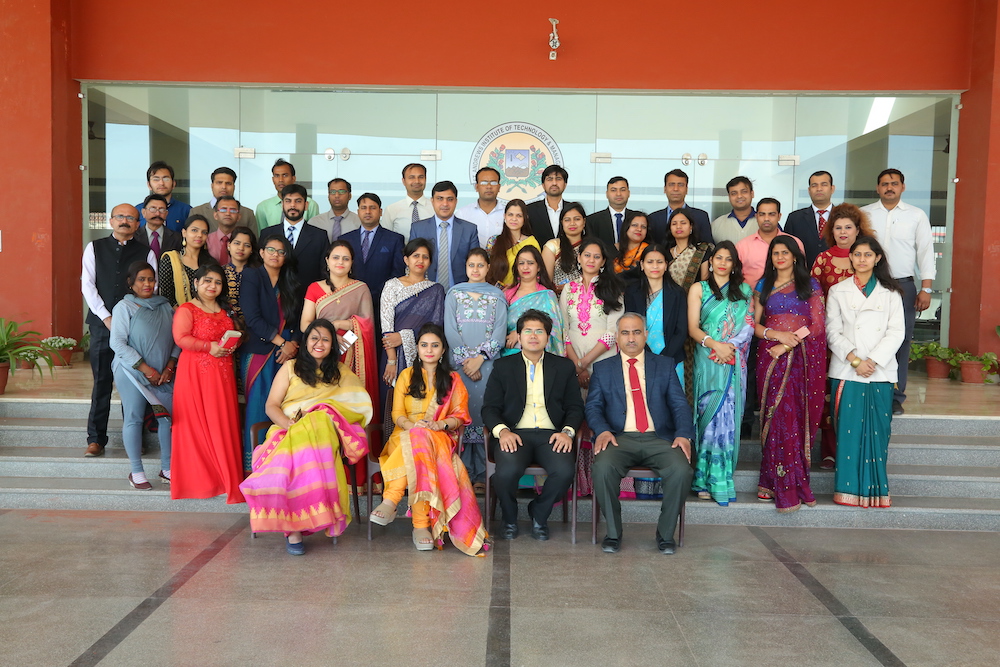
The eligibility criteria for MBA programs in India’s top colleges vary slightly between institutions.
However, here are common eligibility requirements across leading MBA institutions:
Common Eligibility Criteria
Educational Qualification:
A bachelor’s degree in any discipline from a recognized university.
Usually, a minimum of 50% marks in graduation (45% for SC/ST/PwD categories).
Entrance Exams:
Most top colleges require scores from national or institutional entrance exams like CAT, XAT.
Work Experience (if applicable):
Some institutions prefer or require relevant work experience for specific programs, particularly executive or one-year MBA courses.
ISB, for instance, mandates a minimum of two years of work experience for its one-year PGP program.
Specific Eligibility for Some Top Colleges
Indian Institutes of Management (IIMs):
Candidates must appear for the CAT.
A minimum of 50% in undergraduate studies is required.
St. Andrews Institute of Technology and Management, Gurgaon:
Requires a bachelor’s degree from a recognized university in any field.
Bachelor’s degree with a minimum of 50% marks.
Xavier School of Management (XLRI), Jamshedpur:
XAT scores are required for some programs.
Bachelor’s degree with at least 50% marks.
SP Jain Institute of Management and Research (SPJIMR), Mumbai:
CAT, XAT scores are accepted.
Bachelor’s degree with a minimum of 50% marks.
Management Development Institute (MDI), Gurgaon:
Accepts CAT scores for its MBA programs.
Requires a bachelor’s degree with 50% marks.
Popular MBA Colleges in Delhi NCR

The Delhi NCR region has many notable business schools that are well-known for their academic quality, placements, and industry connections.
Here are some of the top MBA colleges in Delhi NCR:
Faculty of Management Studies (FMS), University of Delhi:
Known for high ROI due to affordable fees and excellent placements.
Faculty of Management Studies (FMS), University of Delhi:
FMS is one of the most prestigious management institutes in India and offers a full-time MBA program.
Delhi School of Economics (DSE), University of Delhi:
DSE offers a Master of International Business (MIB) program and a Master of Human Resource and Organizational Development (MHROD) program, which are highly regarded in the industry.
Department of Financial Studies (DFS), University of Delhi:
DFS offers a Master of Finance and Control (MFC) program, which focuses on financial management and related areas.
St. Andrews Institute of Technology and Management, Gurgaon:
Offers comprehensive management programs with good placement opportunities.
Top Recruiters for MBA Graduates

The top recruiters for MBA graduates can vary depending on factors like industry, location, and the reputation of the business school. However, some companies consistently rank highly as preferred employers for MBA graduates across various sectors.
McKinsey & Company
A global management consulting firm known for its prestigious reputation and rigorous problem-solving approach. McKinsey offers diverse opportunities across industries and functions, including strategy, operations, and organizational transformation.
Bain & Company
Another leading management consulting firm, Bain is renowned for its focus on client results and collaborative company culture. MBA graduates often find roles in strategy consulting, private equity, and other areas of business optimization.
Boston Consulting Group (BCG)
BCG is a top-tier management consulting firm specializing in strategy consulting, digital transformation, and innovation. MBA graduates at BCG work on high-impact projects for a diverse range of clients worldwide.
A technology giant, Google attracts MBA graduates for roles in product management, marketing, strategy, and operations. Known for its innovative culture and challenging projects, Google offers opportunities for career growth and impact.
Amazon
As one of the world’s largest e-commerce and cloud computing companies, Amazon offers MBA graduates roles in areas such as retail, operations, marketing, and business development. Its fast-paced environment and focus on innovation appeal to many MBA candidates.
Apple
Renowned for its innovative products and design-driven approach, Apple recruits MBA graduates for various roles in product management, marketing, operations, and retail. MBA candidates at Apple often work on cutting-edge projects that shape the future of technology.
Goldman Sachs
A leading global investment bank, Goldman Sachs offers MBA graduates opportunities in investment banking, asset management, risk management, and other financial services. Known for its rigorous training programs and high-caliber talent, Goldman Sachs is a sought-after employer for finance-oriented MBAs.
J.P. Morgan
Another prominent investment bank, J.P. Morgan provides MBA graduates with roles in investment banking, asset management, corporate banking, and other financial services. With a global presence and diverse business lines, J.P. Morgan offers ample opportunities for career advancement.
Microsoft
A technology powerhouse, Microsoft recruits MBA graduates for roles in product management, marketing, business development, and strategy. MBA candidates at Microsoft have the chance to work on innovative projects and shape the future of technology.
Deloitte
A leading professional services firm, Deloitte offers MBA graduates opportunities in management consulting, strategy, digital transformation, and other advisory services. With a global network and diverse client base, Deloitte provides a platform for MBA candidates to grow their careers in consulting.
FAQs
Which MBA is best in India?
The best MBA from India is often associated with programs from top institutes like the IIM Ahmedabad, IIM Bangalore, and IIM Calcutta, due to their rigorous curriculum, distinguished faculty, and excellent placement records. The one-year MBA program at the Indian School of Business (ISB) is also highly regarded for its global perspective and strong alumni network. Ultimately, the “best” MBA depends on your career goals, specialization interest, and program fit.
What is the cost of MBA from India?
The cost of an MBA from India varies significantly based on the institution. Generally, fees range from around ₹2 lakh to ₹25 lakh for the entire program. Public institutions like IIMs can cost between ₹10 lakh and ₹25 lakh, while private institutions often have fees ranging from ₹5 lakh to ₹20 lakh.
Which is India’s no. 1 MBA college?
Indian Institute of Management Ahmedabad (IIM-A) is frequently regarded as India’s top MBA college, attributed to its outstanding academic reputation, rigorous curriculum, and consistently strong placement records compared to other top MBA colleges in India.
Who are eligible for MBA from India?
To be eligible for an MBA from India, candidates typically need a bachelor’s degree from a recognized institution with a minimum score (usually 50% for general category and 45% for reserved categories). They also need to qualify through an entrance exam such as CAT, XAT, or GMAT, and sometimes possess relevant work experience.
What is a Tier 2 MBA college?
A Tier 2 best MBA college is an institution that offers quality management education but is generally not ranked among the very top business schools. These colleges often provide good faculty, infrastructure, and placement opportunities, making them strong alternatives to the Tier 1 institutes.
Which college is best for Tier 2 MBA?
A prominent Tier 2 MBA college is the St. Andrews Institute of Technology and Management, Gurgaon, known for its quality programs, industry connections, and strong placement record.
Which are tier 3 MBA colleges in India?
Tier 3 management colleges in India encompass institutions such as the Institute of Public Enterprise (IPE) in Hyderabad, Alliance School of Business in Bangalore, and Jaipuria Institute of Management in Lucknow. While these colleges typically provide valuable education, they may not boast the same level of reputation or placement records as Tier 1 or Tier 2 institutes.
What are tier 2 colleges in India?
Tier 2 colleges in India are institutions that provide high-quality education but aren’t generally ranked among the very top. They offer good faculty, infrastructure, and placements.
What is an MBA, and why pursue it in India?
Pursuing an MBA (Master of Business Administration) is a postgraduate journey that empowers individuals with skills and knowledge across diverse aspects of corporate administration. Opting to pursue MBA from India provides avenues for career advancement, skill honing, networking, and exposure to diverse industries within a swiftly growing economy.
List Tier 2 Government MBA Colleges in India.
Tier 2 Government MBA Colleges in India include institutions such as:
- Department of Management Studies (DMS), Indian Institute of Technology (IIT) Delhi
- Department of Management Studies (DMS), Indian Institute of Technology (IIT) Madras
- Department of Industrial and Management Engineering (IME), Indian Institute of Technology (IIT) Kanpur
- Department of Management Studies (DoMS), Indian Institute of Technology (IIT) Roorkee
- Department of Management Studies (DoMS), Indian Institute of Technology (IIT) Bombay
- Department of Management Studies (DoMS), Indian Institute of Technology (IIT) Kharagpur
- National Institute of Industrial Engineering (NITIE), Mumbai
- Faculty of Management Studies (FMS), University of Delhi
- St. Andrews Institute of Technology and Management, Gurgaon
- Shailesh J. Mehta School of Management (SJMSOM), Indian Institute of Technology (IIT) Bombay
- Vinod Gupta School of Management (VGSoM), Indian Institute of Technology (IIT) Kharagpur.
What specializations are offered in Tier 2 MBA colleges in India?
Tier 2 MBA colleges in India typically offer a wide range of specializations to cater to diverse career interests and industry demands. Common specializations include Marketing, Finance, Human Resources Management, Operations Management, Information Technology, International Business, and Entrepreneurship.
List of top distance MBA Colleges in India.
Here is a list of some distance MBA institutes in India:
- Indira Gandhi National Open University (IGNOU)
- ICFAI University
- Sikkim Manipal University (SMU)
- Annamalai University
- IMT Distance and Open Learning Institute
- Madras University Distance Education
- Karnataka State Open University (KSOU)

